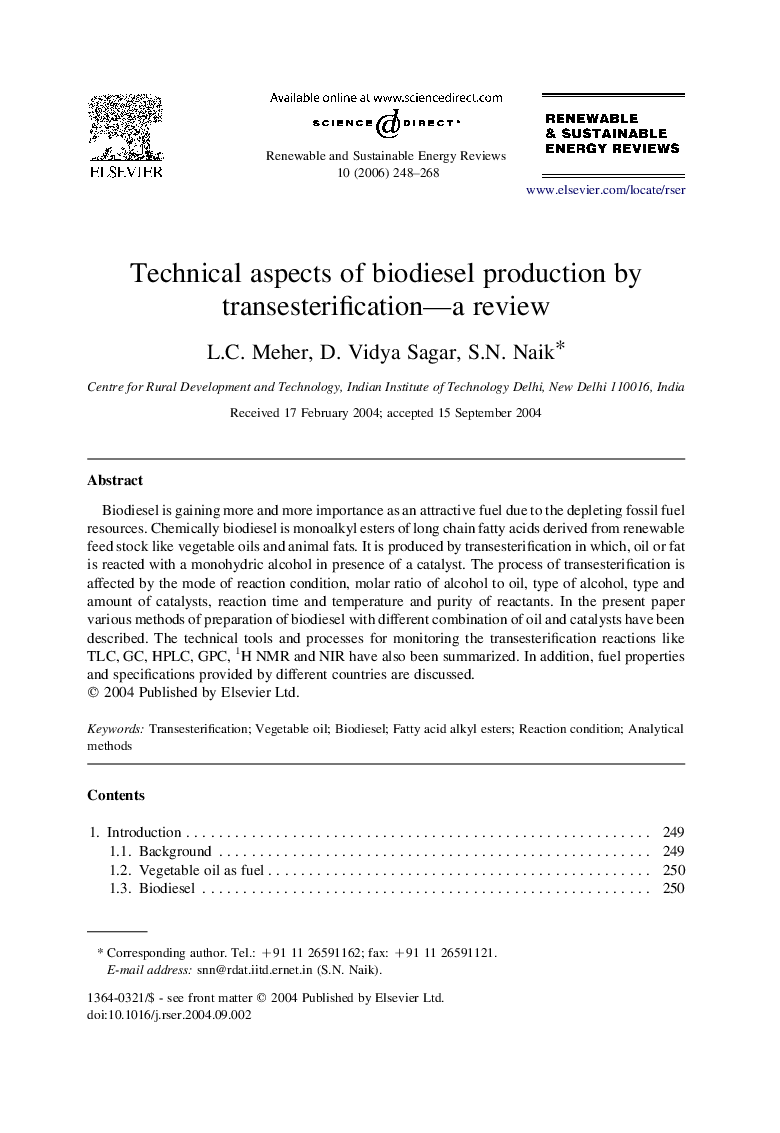| Article ID | Journal | Published Year | Pages | File Type |
|---|---|---|---|---|
| 1752449 | Renewable and Sustainable Energy Reviews | 2006 | 21 Pages |
Biodiesel is gaining more and more importance as an attractive fuel due to the depleting fossil fuel resources. Chemically biodiesel is monoalkyl esters of long chain fatty acids derived from renewable feed stock like vegetable oils and animal fats. It is produced by transesterification in which, oil or fat is reacted with a monohydric alcohol in presence of a catalyst. The process of transesterification is affected by the mode of reaction condition, molar ratio of alcohol to oil, type of alcohol, type and amount of catalysts, reaction time and temperature and purity of reactants. In the present paper various methods of preparation of biodiesel with different combination of oil and catalysts have been described. The technical tools and processes for monitoring the transesterification reactions like TLC, GC, HPLC, GPC, 1H NMR and NIR have also been summarized. In addition, fuel properties and specifications provided by different countries are discussed.
